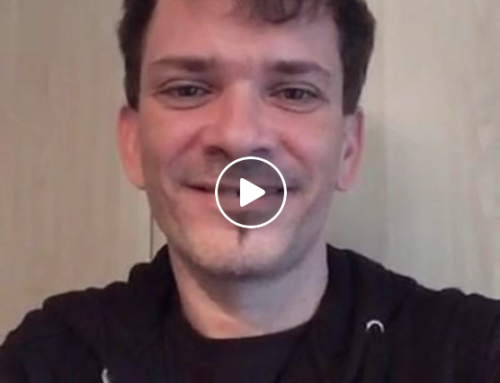I was shocked when I read this line in a post yesterday, “Your brain isn’t just resistant to change; it’s lazy.” I thought about it a bit more and I realised, in a way, it is true.
You have an autopilot control in your brain that is well able to take you as safely as possible through life. It does this in response to the world around you and more important in alignment with the mental image you have developed of yourself and your life over your lifetime.
Last week someone I’m close to pulled back from our relationship. At first I tried to communicate but she responded with the comment, “I’m just having an off day, don’t take it personal.”
I worked hard to stay positive, but three days later she made it clear that she needed some space. This was soul-crushing for me at first. After three sleepless nights and a lot of “thinking”, I have regained a decent level of sanity.
Inspite of our best intentions we often make mistakes and fail, because of the limited understanding we have, as we go through life with our minds on autopilot. It can be the “easiest” way go when the decision we make are the right ones, but what if we are wrong?
Facing a crisis often brings the truth of a situation to light. Financial struggle, loss of love, loss of a job, suffering of a friend, disappointment, or poor health conditions are some of the things that disrupt our automatic thinking. By doing so they take us past the protective barriers in our mind and into new thinking and possibilities outside of our mind’s set paradigm.
Crises help us by:
- Disrupting our automatic thinking and defensive mental patterns.
- Interrupting negative habits and leaving room for new ones to replace them.
- Making room for new questions and thoughts to surface, allowing us clarity and growth.
In my case I have had some ideas about relationships that do not seem to be serving me or those I’ve loved well. Enter crisis, and an entire new line of thinking opens up.
Character cannot be developed in ease and quiet. Only through experience of trial and suffering can the soul be strengthened, ambition inspired, and success achieved.”
Helen Keller
This post is not about romantic woes, but about the crises that arise from these and similar difficult experiences. Though everyone does love a good drama from time to time.
Amazing things can happen when we experience failure or crisis. The big questions is, how committed are you to benefiting from them and making changes based on what you learn?
Can you avoid crises or mistakes you’ll regret later?
If you keep doing the same things you have been doing, you’ll keep getting the same results you have been getting. To experience change and move away from your collision course with disaster you need to break your current thinking patterns and limited perspective.
It is possible to learn to initiate personal change on your own, however the help of friends, loved ones, a coach or other professionals you trust is often more reliable because they do not filter their questions through your current thought patterns and paradigms.
Having someone you trust listen to you, explore your subject with you, and challenge your assumptions, fears, and beliefs is transformational. By probing your mental structures and guarded thinking together, you are able to surface the hidden fears, desires, and worries that are limiting your ability to see new possibilities.
The sudden solution, amazing truth, and profound understanding that gave you no choice but to change your mind and behavior most likely came as a result of a disruptive question and deep reflection initiated by someone else.”
Dr. Marcia Reynolds
Conversations on personal matters can be unsettling at best, and often stir up emotional discomfort. As you recognise the benefits you can derive from such conversations it seems like a small price to pay and well worth initiating. Dr. Marcia Reynolds calls such conversations the discomfort zone.
One thing you can be sure of is, change will come. Make change your friend by communicating with others and opening up to new lines of thinking. It sure beats holding out for a crisis to arise, and hoping you pass the grade.
What if you are facing a crisis alone?
In closing here a few tips that have helped me, when facing challenges alone and I don’t have anyone around to talk to. They are in no particular order.
- I like to get up early in the morning and meditate for 20 minutes before I face my day.
- One my easiest go-tos is the emotional freedom technique (EFT) to let go of my emotional tension. You can learn about EFT here.
- I love to put on music that is uplifting and/or relaxing. This can be tricky but the right kind of music has a great effect on the mind and spirit.
- Accepting the situation and observing it without judgment has gotten easier with practice. Do not resist it. As thoughts or emotions well up I observe them and let them go. (Read The Power of Now)
- I make an effort to take time to journal about my experience. As things go down on paper or on the computer it helps bring clarity into the picture.




